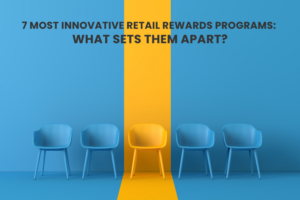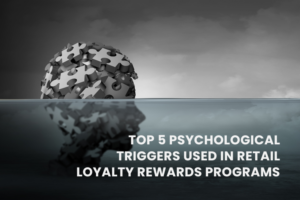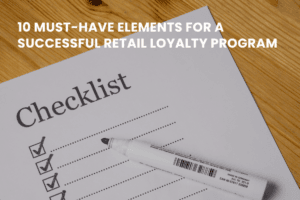The last two years have been hard to swallow for all industries across the world. Apart from the distortion the pandemic created in our daily lives, retail stores are still learning to navigate through the uncertain waters of the pandemic.
The economic recession across the world was due to the unexpected shutdown of consumer and business activities. All of us were locked up at our homes, with minimal physical contact with the outside world. Retail sales plummeted around 20% during February-April 2020, and the clothing and accessory sector was one of the worst affected, with sales going down drastically.
To survive, retailers must adapt to changing consumer behavior patterns and ensure they’re up and running.
Hygiene First
Many countries have lifted the lockdown, and shops, restaurants, and tourist places have started operating in full swing. However, with new variants of Covid-19 creating disruption, retailers have to consider that consumers have become more apprehensive of hygiene and safety and serve them accordingly.
Further, to comply with the rules of social distancing and minimum physical contact, many retail stores shifted towards online sales. People still fear crowded places, which pushes consumers to online shopping that will vastly influence the retail industry.
Digitize
As the whole world embraces digitization in some form or the other, retail stores also have to implement digital solutions to increase sales and digital footprints. Considering this fact, retail stores should promote digital-friendly solutions like real-time stock information, sharing product information through apps, etc., enabling customers to avoid physical contact as much as possible. In-store digitization will help in managing customers’ omnichannel activities. OptCulture’s solutions allow retail stores to engage with customers through omnichannel activities and build brand loyalty. E-Receipts help reduce touch and digital touch points like mobile apps, email and SMS reduce the need for human interaction to know about offers, stores, transaction data and more.
Reduce Touch
As a matter of fact, curbside orders increased 208% during the Covid-19 pandemic in 2020. More and more retail stores will leverage touch less payments, buy online, pick up in-store, and schedule appointments for pickup in the coming year, and it is expected to stay for a more extended period.
Innovate
As the clothing sector was the worst hit, retailers started adopting Augmented Reality (AR) and Virtual Reality (VR) solutions to experience products virtually. You can simply see how the garment would look on you virtually through a mobile app. AR and VR also offer product visualization, virtual malls, and product information, giving ample opportunities to customers to learn the look and feel of the product before buying it. ASOS- fashion retail brand started with AR models to help customers see how a particular garment would look on different body types.
Other brands such as Nike, L’Oreal, IKEA, Apple, and many more have started implementing AR and VR, and we will see more brands embracing these cutting-edge technologies in the post-Covid world.
We will see more digital interaction with consumers with virtual buying touchpoints in the future. And as online sales are increasing, returns will also increase, for which retail stores should have proper procedures and safety standards in place. Retail stores will become more like pickup centers and less like shopping centers. Ultimately, retailing will revolve around convenience and offer ease of shopping to customers.
This blog was originally written by Priya Dialani for OptCulture.
The economic recession across the world was due to the unexpected shutdown of consumer and business activities. All of us were locked up at our homes, with minimal physical contact with the outside world. Retail sales plummeted around 20% during February-April 2020, and the clothing and accessory sector was one of the worst affected, with sales going down drastically.
To survive, retailers must adapt to changing consumer behavior patterns and ensure they’re up and running.
Hygiene First
Many countries have lifted the lockdown, and shops, restaurants, and tourist places have started operating in full swing. However, with new variants of Covid-19 creating disruption, retailers have to consider that consumers have become more apprehensive of hygiene and safety and serve them accordingly.
Further, to comply with the rules of social distancing and minimum physical contact, many retail stores shifted towards online sales. People still fear crowded places, which pushes consumers to online shopping that will vastly influence the retail industry.
Digitize
As the whole world embraces digitization in some form or the other, retail stores also have to implement digital solutions to increase sales and digital footprints. Considering this fact, retail stores should promote digital-friendly solutions like real-time stock information, sharing product information through apps, etc., enabling customers to avoid physical contact as much as possible. In-store digitization will help in managing customers’ omnichannel activities. OptCulture’s solutions allow retail stores to engage with customers through omnichannel activities and build brand loyalty. E-Receipts help reduce touch and digital touch points like mobile apps, email and SMS reduce the need for human interaction to know about offers, stores, transaction data and more.
Reduce Touch
As a matter of fact, curbside orders increased 208% during the Covid-19 pandemic in 2020. More and more retail stores will leverage touch less payments, buy online, pick up in-store, and schedule appointments for pickup in the coming year, and it is expected to stay for a more extended period.
Innovate
As the clothing sector was the worst hit, retailers started adopting Augmented Reality (AR) and Virtual Reality (VR) solutions to experience products virtually. You can simply see how the garment would look on you virtually through a mobile app. AR and VR also offer product visualization, virtual malls, and product information, giving ample opportunities to customers to learn the look and feel of the product before buying it. ASOS- fashion retail brand started with AR models to help customers see how a particular garment would look on different body types.
Other brands such as Nike, L’Oreal, IKEA, Apple, and many more have started implementing AR and VR, and we will see more brands embracing these cutting-edge technologies in the post-Covid world.
We will see more digital interaction with consumers with virtual buying touchpoints in the future. And as online sales are increasing, returns will also increase, for which retail stores should have proper procedures and safety standards in place. Retail stores will become more like pickup centers and less like shopping centers. Ultimately, retailing will revolve around convenience and offer ease of shopping to customers.
This blog was originally written by Priya Dialani for OptCulture.
Latest Posts
Ranking the Top 10 Best Retail Loyalty Programs
July 21, 2024
Ranking the Top 10 Best Retail Loyalty Programs In the competitive...
7 Most Innovative Retail Rewards Programs: What Sets Them Apart?
July 21, 2024
7 Most Innovative Retail Rewards Programs: What Sets Them Apart? ...
Top 5 Psychological Triggers Used in Retail Loyalty Rewards Programs
July 21, 2024
Top 5 Psychological Triggers Used in Retail Loyalty Rewards Programs...
10 Must-Have Elements for a Successful Retail Loyalty Program
July 21, 2024
10 Must-Have Elements for a Successful Retail Loyalty Program Retail...
Elevating Communication with OptCulture 3.0: WhatsApp and Push Notifications
July 21, 2024
Elevating Communication with OptCulture 3.0: WhatsApp and Push NotificationsIn the...




